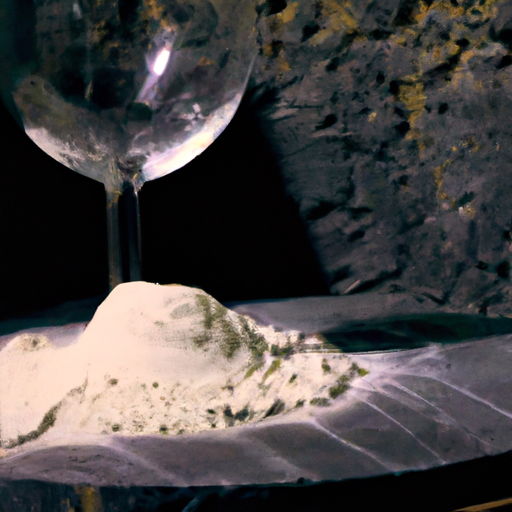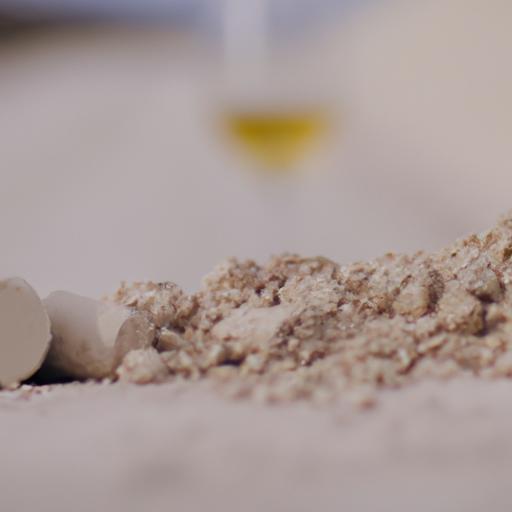
The History and Significance of Chalk in Wine Production
Chalk: The Precious White Gold of Wine
The History and Significance of Chalk in Wine Production
When it comes to wine production, there is one element that has played a significant role throughout history: chalk. This humble mineral, often referred to as the “white gold” of wine, has been used in vineyards for centuries, shaping the very essence of the wines we enjoy today.
The use of chalk in wine production can be traced back to ancient times. The Romans, known for their love of wine, were among the first to recognize the benefits of chalk in vineyard soils. They discovered that the porous nature of chalk allowed it to retain water, providing a consistent source of moisture for the vines. This was particularly important in regions with dry climates, where water scarcity could pose a threat to the health of the vines.
As time went on, the significance of chalk in wine production became more apparent. It was not only the water-retaining properties of chalk that made it valuable, but also its ability to regulate temperature. Chalk has excellent thermal properties, absorbing heat during the day and releasing it at night. This natural temperature regulation helps to create a stable and favorable environment for the vines, allowing them to thrive and produce high-quality grapes.
In addition to its physical properties, chalk also plays a crucial role in the chemical composition of the soil. It is rich in calcium carbonate, which helps to neutralize acidity in the soil. This is particularly important in regions with acidic soils, as it creates a more balanced environment for the vines. The presence of chalk also contributes to the minerality often found in wines produced from chalk-rich soils, adding complexity and depth to the final product.
One of the most famous wine regions where chalk is prevalent is Champagne, France. The chalky soils of Champagne have long been recognized as a key factor in the production of sparkling wines. The unique combination of chalk, climate, and grape varieties in this region creates the perfect conditions for the production of high-quality Champagne. The chalk acts as a natural filter, purifying the water that flows through it and providing the vines with the necessary nutrients to thrive.
But it’s not just Champagne that benefits from chalk. Many other renowned wine regions around the world, such as Burgundy in France and the Douro Valley in Portugal, also have chalk-rich soils. These regions have gained international recognition for their exceptional wines, and chalk is undoubtedly one of the factors contributing to their success.
In conclusion, chalk has a long and storied history in wine production. Its unique properties, including water retention, temperature regulation, and soil composition, make it an invaluable resource for vineyards around the world. From the ancient Romans to modern winemakers, the significance of chalk in wine production cannot be overstated. So, the next time you raise a glass of your favorite wine, take a moment to appreciate the precious white gold that helped bring it to life.
Exploring the Role of Chalk in Enhancing Wine Quality and Flavor

Chalk: The Precious White Gold of Wine
Chalk, a sedimentary rock composed of calcium carbonate, has long been recognized as a valuable resource in various industries. However, its significance in the world of wine is often overlooked. Chalk plays a crucial role in enhancing the quality and flavor of wines, particularly those produced in certain regions known for their unique terroir. In this article, we will explore the role of chalk in winemaking and how it contributes to the overall character of the wine.
One of the key ways in which chalk influences wine quality is through its impact on soil composition. Chalk-rich soils, also known as chalky or limestone soils, are highly prized by winemakers due to their excellent drainage properties. The porous nature of chalk allows excess water to drain away, preventing waterlogging and ensuring that the vines do not become overly saturated. This is particularly important in regions with high rainfall, as it helps to prevent the development of fungal diseases that can damage the grapes.
Furthermore, chalky soils have a unique ability to retain and reflect heat. During the day, the chalk absorbs and stores heat from the sun, creating a warm microclimate around the vines. This warmth is then slowly released during the night, providing a protective blanket that helps to prevent frost damage. The combination of good drainage and heat retention makes chalky soils ideal for growing grapes, as it allows the vines to thrive and produce high-quality fruit.
In addition to its influence on soil composition, chalk also has a direct impact on the flavor profile of wines. The high levels of calcium carbonate found in chalky soils contribute to the minerality often associated with wines produced in these regions. This minerality is characterized by flavors and aromas reminiscent of wet stones, flint, and crushed oyster shells. It adds a unique dimension to the wine, enhancing its complexity and providing a sense of place.
Moreover, the alkaline nature of chalky soils helps to regulate the acidity of the grapes. The pH level of the soil affects the acidity of the grapes, which in turn influences the overall balance and structure of the wine. Chalky soils tend to have a higher pH, resulting in grapes with lower acidity. This can be beneficial in regions with warmer climates, as it helps to maintain freshness and prevent the wine from becoming overly ripe or flabby.
It is worth noting that not all wines benefit from chalky soils. Certain grape varieties, such as Chardonnay and Pinot Noir, are particularly well-suited to these conditions. These grapes thrive in the cool climate and mineral-rich soils found in regions like Champagne and Burgundy, where chalk is abundant. The unique combination of grape variety, climate, and soil composition creates wines that are highly sought after and revered by wine enthusiasts around the world.
In conclusion, chalk is indeed the precious white gold of wine. Its influence on soil composition, heat retention, and flavor profile make it an invaluable resource in winemaking. Chalky soils provide the ideal conditions for grape cultivation, allowing the vines to produce high-quality fruit with unique flavors and aromas. The role of chalk in enhancing wine quality and flavor cannot be overstated, and its importance in the world of wine should not be overlooked.
Chalk Terroir: Unveiling the Unique Characteristics it Imparts to Wines
Chalk: The Precious White Gold of Wine
Chalk terroir is a fascinating aspect of winemaking that often goes unnoticed by the casual wine drinker. However, for those in the know, chalk is considered the precious white gold of wine. It is a unique type of soil that imparts distinct characteristics to wines, making them truly exceptional.
One of the most famous regions known for its chalk terroir is Champagne, France. The chalky soils in this region are a result of ancient marine deposits, which have been compressed over millions of years. This unique soil composition plays a crucial role in the production of Champagne, giving it its signature crispness and minerality.
The chalk terroir in Champagne also contributes to the region’s ability to produce sparkling wines with exceptional aging potential. The porous nature of chalk allows for excellent drainage, which helps to regulate water supply to the vines. This, in turn, leads to grapes with concentrated flavors and balanced acidity, perfect for creating wines that can age gracefully for many years.
But Champagne is not the only region where chalk terroir can be found. In fact, many other renowned wine regions around the world also have chalky soils that contribute to the unique characteristics of their wines. For example, the vineyards of the Loire Valley in France, the Douro Valley in Portugal, and the Marlborough region in New Zealand all have chalk terroir that adds complexity and elegance to their wines.
So, what is it about chalk that makes it so special for winemaking? One of the key factors is its ability to retain and reflect heat. Chalk has a high heat capacity, meaning it can absorb heat during the day and release it slowly at night. This helps to create a more moderate and consistent climate for the vines, which is essential for optimal grape ripening.
Furthermore, chalk is rich in calcium carbonate, which provides essential nutrients to the vines. Calcium is crucial for maintaining the pH balance of the soil, ensuring that it is not too acidic or alkaline. This balance is vital for the vines to absorb nutrients effectively and produce high-quality grapes.
The porous nature of chalk also plays a significant role in the overall health of the vineyard. It allows for excellent drainage, preventing waterlogging and reducing the risk of diseases such as root rot. Additionally, the porous structure of chalk allows the vines to develop deep root systems, which can access water and nutrients from deeper layers of the soil.
In conclusion, chalk terroir is a precious resource for winemakers around the world. Its unique characteristics, such as excellent drainage, heat retention, and nutrient-rich composition, contribute to the production of exceptional wines. Whether it is the crispness and aging potential of Champagne or the elegance and complexity of wines from other chalky regions, there is no denying the impact that chalk terroir has on the world of wine. So, the next time you enjoy a glass of wine, take a moment to appreciate the precious white gold that lies beneath the vineyards.






